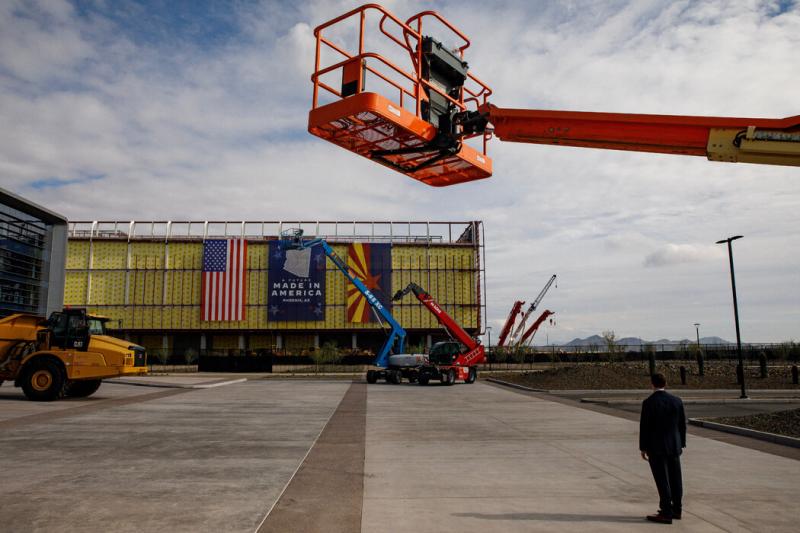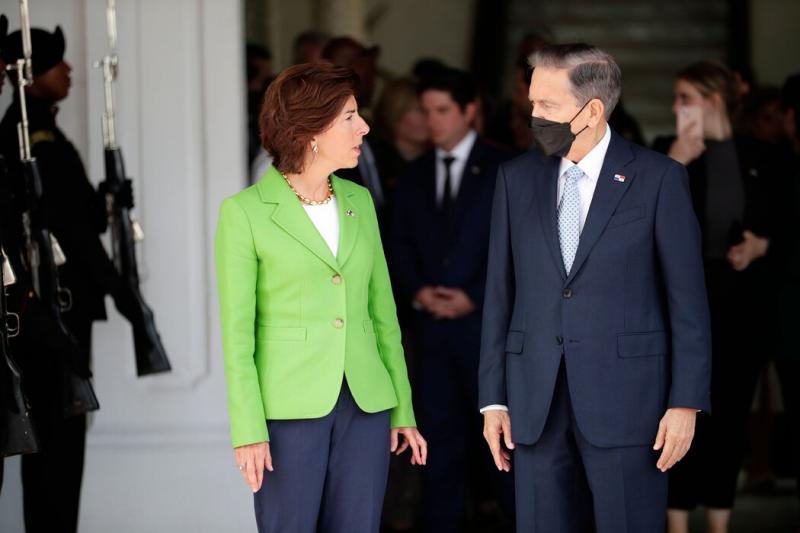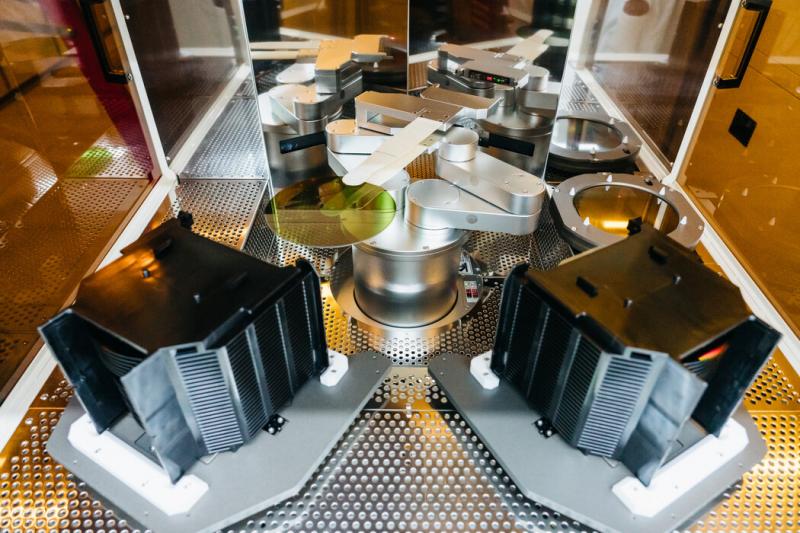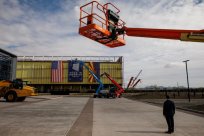
If the Biden government can get what he wants, more chips will be produced in factories in Texas or Arizona.
Then these chips will be transported to partner countries such as Costa Rica, Vietnam or Kenya for final assembly, and then send them to all parts of the world to run various equipment from refrigerators to supercomputers.
When it comes to semiconductors, people may not think of these places first.However, government officials are trying to change the global chip supply chain and negotiate intensely for this.
The core content of the plan includes allowing foreign companies to invest in chip manufacturing in the United States and find factories in other countries to complete the remaining work.Washington officials and researchers call it part of the new "chip diplomacy".
Bynden government believes that the production of more micro brains in the United States to produce these electronic devices can help the United States more prosperous and secure.President Biden boasted this effort in an interview with ABC on Friday.He said in an interview that he had allowed South Korea to invest billions of dollars to produce chips in the United States.
But a key part of the strategy is being launched outside the United States. The government is working hard to cooperate with partners to ensure that investment in the United States is more durable.
If this preliminary efforts are made, it may help the government to achieve some extensive strategic goals.It hopes to weaken security concerns involving China. China is expanding its chip manufacturing industry and pose a threat to Taiwan, the Global Chip Technology Center.It also hopes to reduce the risk of the interruption of the chip supply chain. This risk becomes obvious during the new crown virus and the Ukrainian war. Both events have caused global shipping and manufacturing to become turbulent.

"Our focus is to do our best to expand the capabilities of different countries and make these global supply chain more flexible," said Rumin Toruy, a professor at Stanford University.Toroir has recently been the Assistant Secretary of State of the Economic and Commercial Affairs Bureau of the United States State Department. The department is at the forefront in establishing a new supply chain's diplomatic efforts.
The goal of the US government is not only chips, but also green energy technology such as electric vehicle batteries, solar panels and wind turbines.So far, China is the biggest participant in these industries.
Torois said that in the three years when Biden was in power, the United States attracted US $ 395 billion to invest in semiconductor manufacturing and $ 405 billion in the development of green technology and clean energy.
Many companies that invest in such manufacturing industries in the United States are headquartered in Asian countries, which are famous for the technology industry -such as Japan, South Korea, and Europe.Korean chip manufacturer SK Hynix is also one of them. The company is building a $ 3.8 billion factory in Indiana.The State Council said that the project is the largest investment in the state in the history, and it may bring more than 1,000 employment opportunities to the region.
Last month, Secretary of State Broskented on a speech at a conference aimed at encouraging foreign investment in the United States in Maryland, mentioned the project.He also emphasized that he hopes that the legislation formulated by Biden can attract foreign investment into the US high -tech manufacturing through "making our highways, railways, broadband and power grids modernization."
He also said that these policies are trying to "strengthen the supply chain and make it diversified, inject strong power into the domestic manufacturing industry, and stimulate the development of future key industries such as semiconductors to clean energy."
The Ministry of Commerce has also played an important role in strengthening the efforts of the chip supply chain, and allocated $ 50 billion in companies and organizations that develop and manufacture chips.

The US Minister of Commerce Raymond leads a in -depth study of the global chip supply chain to determine the loopholes and cooperate with the foreign government to discuss the opportunity to increase overseas investment.
This topic is the focus of Raymond's visit to Costa Rica this spring. At that time, she met with local officials and Intel executives.Intel has a factory there.(In January of this year, Tolo gave a speech at a semiconductor manufacturing meeting in Costa Rica.) During his visit to Panama and Thailand, she also discussed the diversification of the semiconductor supply chain.
However, reshaping the global supply chain and reducing dependence on East Asia will be a challenge.Compared with the expected US factories, East Asia's chip factories provide more cutting -edge technologies, more excellent engineers, and lower costs.
More than 60%of the world's chips and almost all the most advanced chips are produced in Taiwan. These chips are used for computers, smartphones and other devices.
In contrast, according to several companies, in the next few years, the US semiconductor industry may face a shortage of up to 90,000 workers.
Governments in China, Taiwan, South Korea and other places are also vigorously subsidizing their own chip industry.
However, billions of dollars in US dollars in the United States are expected to change the global supply chain to a certain extent.According to a report by the semiconductor industry association and Boston Consulting Group in May, by 2032, the share of the United States in the global chip manufacturing industry is expected to increase from the current 10%to 14%.

Some US government officials have adopted more mandatory chip diplomatic forms to prevent China's research and development of American technology -based versions.The focus of this approach is to persuade a few countries -especially Japan and the Netherlands -preventing companies from selling some chip manufacturing tools to China.
The head of the US Department of Commerce, the head of export control department, Allen Estviz visited Japan and the Netherlands last month to try to convince these countries to prevent companies from selling some advanced technologies to China.
Troy and assistants flew to all parts of the world, looking for countries and companies that might want to invest in the American industry and build factories in the United States to form a supply chain terminal.Toroir said Bayon recently promulgated legislation that created more manufacturing employment opportunities in the United States, including infrastructure bills and chips and science bills. His department's work is also the content.
TheThe chip bill includes providing the government with 500 million US dollars every year to establish a safe supply chain and protect semiconductor technology.The U.S. State Department uses this fund to find countries developing the supply chain.U.S. officials are organizing research on a series of countries to understand how to improve infrastructure and labor to certain standards to ensure the smooth progress of chip assembly, packaging and transportation.
The countries currently participating in the project include Costa Rica, Indonesia, Mexico, Panama, the Philippines and Vietnam.The US government is introducing Kenya.
Torois said work training is the primary task during the creation of this supply chain.He discussed the issue of cooperating with overseas institutions to develop training projects with overseas institutions.In May this year, he visited the Vietnamese National University in Ho Chi Minh City.
Martin Rose, the managing director of the Chinese research company Datenna Inc., said that the alliance network is the strategic advantage of the United States to China.
He said that if the United States wants to take everything, the cost will be too high.If you fight alone, it is equivalent to not recognizing such a reality -today's technology spreads much widespread globally than decades ago, and countries play an important role in the chip supply chain.



